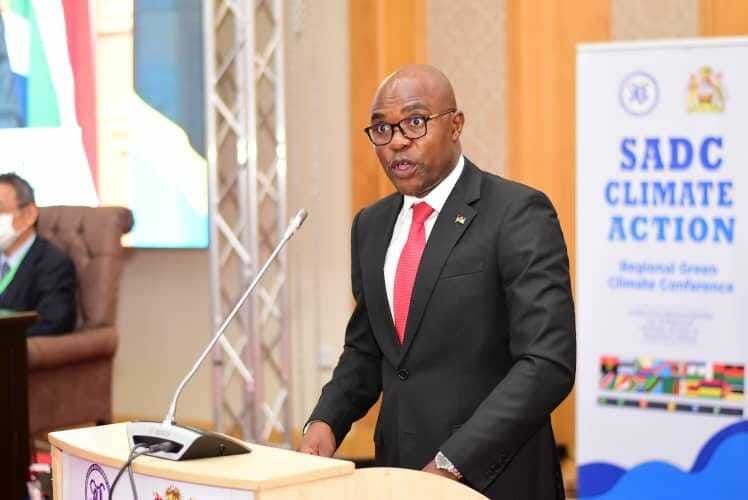
MALAWI: The SADC's Deputy Executive Secretary for Regional Integration has urged member countries to carefully consider ratifying the Protocol on Environmental Management for Sustainable Development in order to address the region's climate change impacts.
Dr. Thembinkosi Mhlongo made the call on Wednesday in Lilongwe, Malawi's capital, at the start of the SADC Regional Green Climate Conference.
He claims that while Africa contributes only 4% of global CO2 emissions, it bears the brunt of the double burden of climate change more than any other continent.
He said: “The SADC region experiences extreme climatic events, especially droughts and cyclones, negatively impacting the economies and societies of the region.”
According to Dr. Mhlongo, the region's high sensitivity to climate change impacts is owing to high poverty levels, economies' reliance on natural resources, and agriculture sectors that are severely impacted by climate change.
Dr. Mhlongo said: “In this endeavour, SADC developed a Protocol on Environmental Management for Sustainable Development, which was signed by all Member States (with the exception of Mauritius and Comoros) in 2014, and has so far been ratified by three Member States, namely Eswatini, Namibia and South Africa.
“We urge, therefore, all other Member States to quickly ratify the protocol, so that it can be immediately enforced. Article 12 of the protocol is specifically addressing measures to deal with the impacts of Climate Change. It is the only legally binding document for managing the environment in the region, hence the need to ensure its immediate and adequate enforcement, in order to address the increasing challenges, we are facing daily.”

Eisenhower Mkaka, Malawi's Minister of Natural Resources and Climate Change, stated that countries in Sub-Saharan Africa suffer the burden of climate change.
“While the entire world is struggling with the challenges presented by the changing global climate, sub-Saharan Africa is highly vulnerable and uniquely susceptible due to its low adaptive capacity and low resilience to the impacts of climate change,” he said.
Limited early warning systems, weak preparedness and recovery capability, and unsustainable high reliance on natural resources for livelihoods and energy, according to Mkaka, compound the problem.
Tropical Cyclones Ana, Gombe, and Batsirai hit sections of the SADC region in January 2022. Winds, torrential rains, devastation, and destruction were brought by these cyclones to sections of Madagascar, Mozambique, Malawi, and Zimbabwe, affecting tens of thousands of people.
In Malawi, for example, the floods displaced more than 110,800 people (22,174 homes). At least 33 people were killed, 158 were injured, and another 20 are still missing. Homes, irrigation systems, roads, bridges, and other infrastructure (including schools, health centers, and churches) were all damaged by the storm.
The severe rains also caused damage to important power plants, resulting in a brief power outage across much of Malawi.
Meanwhile, the UN Resident Coordinator (ad interim), Mr. Shigeki Komatsubara said the conference has come at an opportune time when ‘we are preparing for the COP27’.
He said: “Outcomes from this conference are expected to go a long way in assisting the SADC region to identify how to overcome challenges and barriers to ensure that the region is able to meet its development objectives in the context of the changing climate. These outcomes will also be a critical part for SADC’s preparation for the COP27, Africa’s CoP, that will be held in Egypt in November 2022.”
The regional meeting, under the theme “COLLECTIVE RESPONSIBILITY FOR ENHANCED CLIMATE ACTION IN SOUTHERN AFRICA’’, is aimed at reflecting on a collective approach for enhanced Climate Action in the SADC Region.